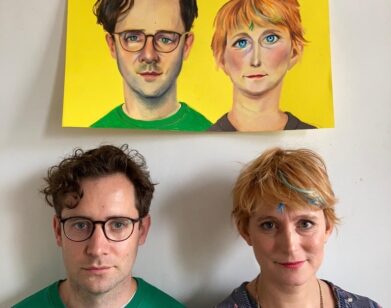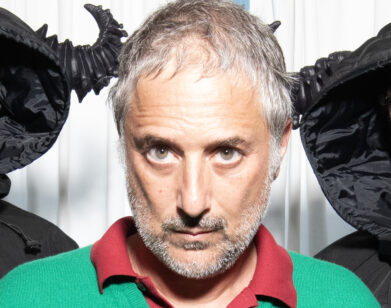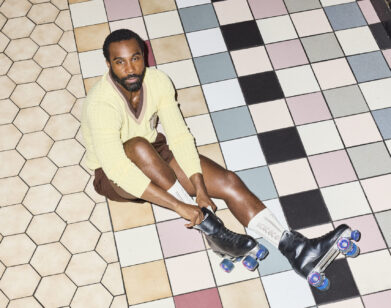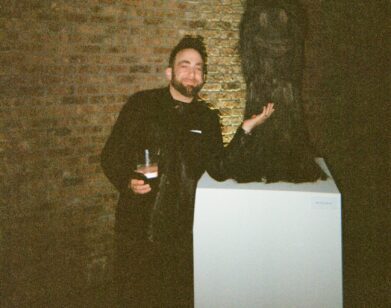Rosamund Pike: male stars should “swallow their pride,” take supporting roles
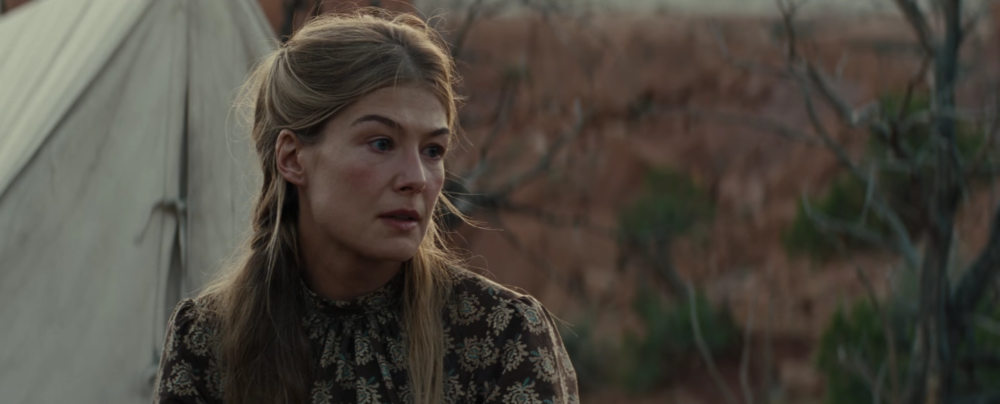
Though she had been working steadily since the turn of the millennium, for many people Rosamund Pike came out of nowhere and startled audiences with her shocking turn as the murderous Amy Dunne in 2014’s Gone Girl. That performance was a masterclass in sociopathy, with Pike’s composed and cool exterior masking the monster beneath the surface. In her latest movie Hostiles, there’s something else festering underneath the steel façade of Pike’s character—the frontierswoman Rosalie Quaid—and that is grief.
Hostiles, the new Western from Scott Cooper starring Christian Bale, opens with a horrific Comanche raid, in which the perpetrators slaughter an innocent family, and leaves Pike’s character with the unimaginable chore of burying her own children. Those scenes are perhaps the most wrenching in a movie that’s filled with them. When she is met by Bale’s soldier John Blocker, Rosalie is a shell of her former self, and Pike spends the rest of the film meticulously re-establishing her humanity. When I sat down with her just before the new year at Manhattan’s Crosby Street Hotel, Pike was pensive and careful when discussing such a heavy film, and was willing to look back and take stock of what a once-in-a-lifetime gig like Gone Girl meant for her career. Pike was also eager to talk about the seismic shift happening in Hollywood, and offered her own suggestion on what else can be done to even the gendered playing field.
BEN BARNA: Did you have any expectations when you signed on to this project?
ROSAMUND PIKE: I thought it would be a very profound, human experience, and that it’s probably going to be something that will change me, and you make yourself vulnerable to those things in this line of work. You want to make entertainment sometimes, and sometimes you want to make art, because I think the way we understand ourselves as human beings is through art, and the way we process emotions—I know I do—is through recognizing experiences on screen, or in novels, or in paintings.
BARNA: Gone Girl was a movie that perfectly straddled the line between art and entertainment.
PIKE: That was amazing. It was an amazing high. Yes it was saying something important about this kind of narcissism epidemic of modern culture and romance, but it was also such a commercial success. I was giddy making it, because it’s something adults want to see in the theater, and of course I’m chasing that again, because it was the best feeling in the world.
BARNA: Was there a scene in Hostiles that you dreaded shooting beforehand?
PIKE: The opening section of the film was pretty tough. I knew the opening fragments of the ambush and massacre would be what it would be because it’s visceral and you’re just responding, but when the grief really settles in, I knew that would be the most emotionally intense. But I was lucky enough to have a group of actors who could take anything I threw at them, so when it came to the burial scene, I felt like I could just live the truth of it. They had my back completely.
BARNA: Was there a macho vibe on set? Scott’s movies tend to have a masculine quality to them.
PIKE: I guess so, but that tends to be the experience on any set. As a woman you’re often outnumbered. That’s just the way things go. But those pioneer women had to be pretty tough. Going West—there’s nothing romantic about that life.
BARNA: How did Gone Girl change your career? Did it give you more respect within the industry?
PIKE: You tell me!
BARNA: It seems that way.
PIKE: Yeah, probably David Fincher choosing you, suddenly everybody wakes up to something, because if you’re okay for him, then you’re certainly okay for other people. The interesting thing for me, when I was talking to him, I suddenly saw that he was very, very serious about me, and I thought, well this is so interesting, because I know I’ve got this in me, but how the hell do you know? Because in our business, if you haven’t had the chance to show something it’s very hard to convey to someone that you’ve got it in you. And he had this sort of uncanny ability to see beyond what other people had missed.
BARNA: So did Scott just straight-up offer you the role?
PIKE: Yeah, but he had seen this Massive Attack video that I did, and that’s what really inspired him to cast me, because he wanted this feral ability, this release of unadulterated energy. And I’ve kind of always been that person, but you know, you’re an actress, you’re for hire, you take roles, you’re making a living, you’re doing what’s required of you. The liberating thing is I’ve always been a much more extreme person than I’ve been perceived as, but I’m sure that’s true for countless people. Now suddenly the roles that I’m playing are becoming bolder and bigger and more expansive, and the physicality is becoming more extreme, and it’s really fun.
BARNA: I’d be remiss if I didn’t ask you about the sea change happening in your industry. What has it been like watching it unfold?
PIKE: The thing that’s been playing in my mind a lot is, okay, there’s been a lot of support for all the women who’ve spoken up, and a lot of men have looked at their own behavior. But the next thing that has to happen is that male actors have to be willing to play supporting roles to lead women. That has to change, because at the moment, I realized that many men are happy to play a supporting role to another man, but they are much less happy to play a supporting role to a woman. People are saying we need more females in our industry and we need more female-driven stories, but that takes the men of bankable star quality to come forward and play supporting roles in those films, because ultimately that’s what the women have always done. We’ve always lent our name value to male-centric stories, and now we’re going to have to ask the men to swallow their pride, because it seems that it’s about pride. But it’s really vital that that’s the next change.
HOSTILES IS OUT IN SELECT THEATERS JANUARY 26, 2017.

